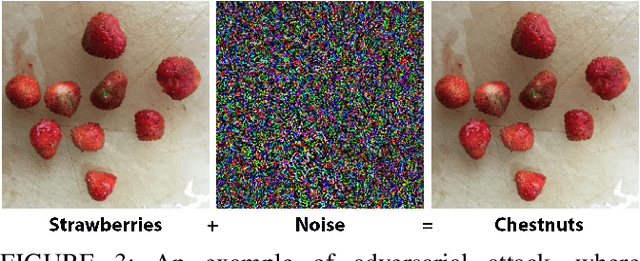Farzad Nikfam
A Homomorphic Encryption Framework for Privacy-Preserving Spiking Neural Networks
Aug 10, 2023Abstract:Machine learning (ML) is widely used today, especially through deep neural networks (DNNs), however, increasing computational load and resource requirements have led to cloud-based solutions. To address this problem, a new generation of networks called Spiking Neural Networks (SNN) has emerged, which mimic the behavior of the human brain to improve efficiency and reduce energy consumption. These networks often process large amounts of sensitive information, such as confidential data, and thus privacy issues arise. Homomorphic encryption (HE) offers a solution, allowing calculations to be performed on encrypted data without decrypting it. This research compares traditional DNNs and SNNs using the Brakerski/Fan-Vercauteren (BFV) encryption scheme. The LeNet-5 model, a widely-used convolutional architecture, is used for both DNN and SNN models based on the LeNet-5 architecture, and the networks are trained and compared using the FashionMNIST dataset. The results show that SNNs using HE achieve up to 40% higher accuracy than DNNs for low values of the plaintext modulus t, although their execution time is longer due to their time-coding nature with multiple time-steps.
AccelAT: A Framework for Accelerating the Adversarial Training of Deep Neural Networks through Accuracy Gradient
Oct 13, 2022



Abstract:Adversarial training is exploited to develop a robust Deep Neural Network (DNN) model against the malicious altered data. These attacks may have catastrophic effects on DNN models but are indistinguishable for a human being. For example, an external attack can modify an image adding noises invisible for a human eye, but a DNN model misclassified the image. A key objective for developing robust DNN models is to use a learning algorithm that is fast but can also give model that is robust against different types of adversarial attacks. Especially for adversarial training, enormously long training times are needed for obtaining high accuracy under many different types of adversarial samples generated using different adversarial attack techniques. This paper aims at accelerating the adversarial training to enable fast development of robust DNN models against adversarial attacks. The general method for improving the training performance is the hyperparameters fine-tuning, where the learning rate is one of the most crucial hyperparameters. By modifying its shape (the value over time) and value during the training, we can obtain a model robust to adversarial attacks faster than standard training. First, we conduct experiments on two different datasets (CIFAR10, CIFAR100), exploring various techniques. Then, this analysis is leveraged to develop a novel fast training methodology, AccelAT, which automatically adjusts the learning rate for different epochs based on the accuracy gradient. The experiments show comparable results with the related works, and in several experiments, the adversarial training of DNNs using our AccelAT framework is conducted up to 2 times faster than the existing techniques. Thus, our findings boost the speed of adversarial training in an era in which security and performance are fundamental optimization objectives in DNN-based applications.
 Add to Chrome
Add to Chrome Add to Firefox
Add to Firefox Add to Edge
Add to Edge